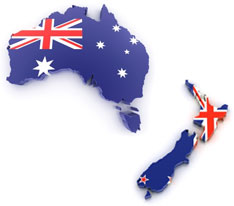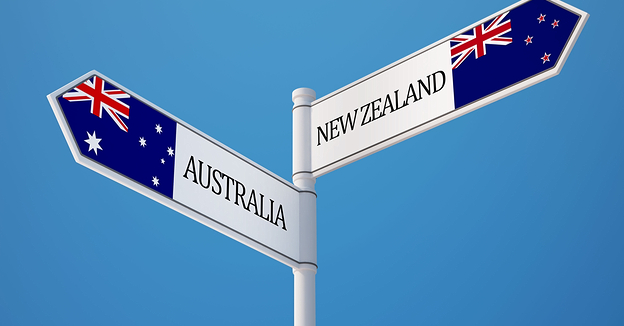 For holiday home buyers choosing between Australia or New Zealand can be a difficult decision. Both countries have beautiful locations to holiday in and offer a similar quality of lifestyle. Whilst the countries also have similar regulatory environments, from an investment perspective there are some differences that can have a significant impact on the value and returns you earn on your investment.
For holiday home buyers choosing between Australia or New Zealand can be a difficult decision. Both countries have beautiful locations to holiday in and offer a similar quality of lifestyle. Whilst the countries also have similar regulatory environments, from an investment perspective there are some differences that can have a significant impact on the value and returns you earn on your investment.
Foreign Ownership Rules:
Both Australia and New Zealand encourage foreign investment, but have some specific restrictions regarding foreigners purchasing property. These restrictions are around the type of property that can be purchased, which may impact your ability to purchase the home of your dream.
In this regard, the Australian rules are a bit simpler to navigate than New Zealand’s. Non-residents in Australia can purchase new properties, such as off-the plan from a developer, or a vacant block of land without too much issue. However a non-resident is not able to purchase an established dwelling in Australia.
In New Zealand, a non-resident can purchase property without restriction unless it is considered to be “sensitive land”. The definition of sensitive land includes a lot of lifestyle properties such as farmland and non-urban land greater than 5 hectares, which may make it more difficult for you to purchase the property you wish in New Zealand.
Whilst it is relatively easy to work out if the property you desire will be approved by FIRB in Australia, you may need to do some additional research or seek advice from a lawyer to determine if you will be able to purchase the property you want in New Zealand.
Fees and Taxes:
There are lots of hidden costs involved in buying a property particularly in Australia. With additional fees and charges such as stamp duty and land transfer charges, the purchase price of your property can increase considerably. One of the biggest advantages of purchasing in New Zealand is that stamp duty is not levied on the purchase of a property. This can save you thousands of dollars (for example on the purchase of a $350,000 property in New South Wales you will pay additional stamp duty of $11,240), making New Zealand more attractive from a financial perspective.
Cost of Property:
As a general rule, the cost of purchasing property in New Zealand is cheaper than in Australia. Whilst purchase prices vary considerable between locations, most investors find that the entry price for properties in New Zealand offer better value for money. There are of course other things to consider when looking at purchase prices, such as nearby infrastructure and location. Even in the larger cities, such as Auckland where prices are high by New Zealand standards, they are still considerably lower than similar properties in Sydney for example.
Capital Growth:
Whilst the initial capital outlay for a property purchase is likely to be higher in Australia, the potential for capital growth in many regions is also likely to be higher. The New Zealand market has had rather sluggish capital growth in recent years, with Auckland being one of the few exceptions. In comparison, many markets in Australia have experienced high rates of growth, and whilst the bubble has burst in some markets like the Gold Coast, there are still plenty of other options available. For further information on some of the holiday home hotspots in Australia you can see our articles on the individual states: Queensland, Victoria, New South Wales, Tasmania, Western Australia and South Australia and Northern Territory.
Rental Yields:
Rental yields vary considerably depending upon factors such as entry price, property location and demand. With generally higher entry costs and fluctuations in demand, Australian properties generally don’t meet the same rental yields as those received in New Zealand. There are of course many exceptions to this, particularly in areas of limited property supply, like the mining boom towns of Western Australia. However as a general rule, you are likely to receive a higher rental yield for your investment property in New Zealand, in some instances this can be as high as greater than 10% yield compared to 5% in many Australian locations.
Capital Gains Tax:
Australia has capital gains tax which is levied on the value of capital appreciation of a property when it is sold. New Zealand does not have a comparable tax, which can make a significant difference when you choose to sell your property. There are some exceptions to this though, such as for property relating to a business or if you are in the business of re-selling property. If you are unsure whether you will attract capital gains tax in New Zealand, it is worthwhile obtaining professional taxation advice.
In the end, your choice of where to purchase a holiday home will be based partly on financial rationale and partly on where you want to holiday. There are so many beautiful spots in both Australia and New Zealand that offer different experiences for holiday makers. It really is worth seeing a few places in both countries before choosing where to invest.
Meanwhile, our publisher TripVillas has some great holiday homes available in Australia here.







